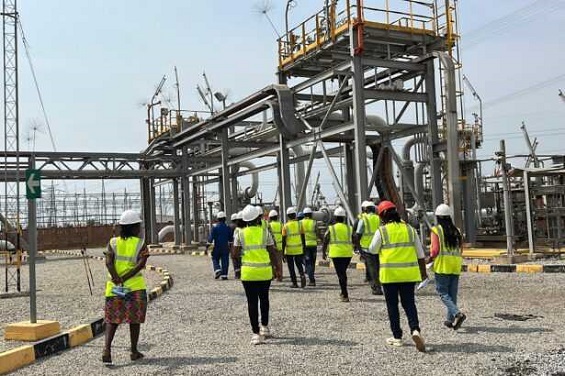The West African Gas Pipeline Company Limited (WAPCo) will begin a 28-day maintenance scheduled from February 5 to March 2, to ensure smooth operations and also maintain the integrity of the sub-regional gas pipelines.
The operations include the suspension of gas transportation from Nigeria to Lome, Cotonou and Tema and also the reverse flow of gas transportation from Takoradi to Tema.
Most of the activities will take place offshore and at WAPCo’s Lagos Beach Compressor Station located at Badagry, Lagos State, Nigeria and at the Takoradi Regulatory and Metering Station at Aboadze.
The General Manager, Corporate Affairs, WAPCo, Dr Issac Adjei Doku, announced these on Wednesday, when he conducted journalists round the Takoradi Regulatory and Metering Station, at Aboadze in the Western Region, where preparatory works are ongoing ahead of a major maintenance on the offshore pipelines.
The operations, he said, would begin at the Lagos Beach Compressor Station where the cleaning device and Pipeline Inspection Gauge (PIG), would be launched and arrive at the Takoradi Regulatory and Metering Station, through the 569km of pipeline.
The first pigging, to be launched on February 5, would take about five days to arrive in Takoradi, and would last for four weeks.
The two-phased cleaning and the inspection of the gas pipeline, Dr Doku, explained, would remove debris, dirt and liquids, inspect the internal walls of the pipelines, replace subsea valves and also conduct any ancillary works.
However, he said, during the period, WAPCo would not suspend all services.
He stated that, an average of about 90,000 Million Standard Cubic Feet per Day (MMSCF/d) of gas was required to push the PIG from Nigeria to Takoradi.
WAPCo, owner and operator of the West African Gas Pipeline, was required to clean and inspect the pipeline every five years, Dr Doku reported, and that the last one was done in 2020, adding that, cleaning and inspection of offshore section within Nigeria had been safely completed in December 2024.
Additionally, he pointed out that, “And so, we will undertake the exercise as required by regulations and procedures to ensure the integrity and safe operations of the pipeline and align it with industry best practices.”
Apart from cleaning the pipeline, WAPCo engineers, he told journalists, would also run the ‘intelligent pig’, fixed with varied instruments to examine interior condition of the pipeline and also collect data from Lagos all the way to Takoradi for analysis.
The data, Dr Doku said, would also allow mitigation measures to be taken.
He made a reference that, five years ago, engineers detected some anomalies in sections of the pipeline which was due to corrosion, because of the liquids that formed within the pipeline.
“The Effluent Management System (EMS) would handle the discharge of fluids into the environment and for special treatment, at the Regulatory and Metering Station to avoid the damage it could cause,” he said.
Dr Doku highlighted that the integrity of the pipeline is key to the entire gas pipeline infrastructure, investment, fortunes of offtakers and stakeholders within the energy and power enclave “Because, if there’s a leakage in the pipeline– it brings concerns on our safety.”
He continued “We need to protect all that investment of about $1.2 billion in building this over 500 kilometres of high pressure gas. So there are the benefits in complying with safety protocols.”
The Operations and Maintenance Superintendent, Benoni Owusu Ayeh, later told The Ghanaian Times that, WAPCo had over the years, learned and built a rich experience with the routine pigging, adding “we improve as we keep going and we hope this exercise will be successful.”
The General Manager, Operations and Maintenance, Auwal Ibrahim, also expressed WAPCo’s commitment in maintaining a proactive stakeholders’ engagement process established, adding “we are ISO compliant and we value international standards.”





